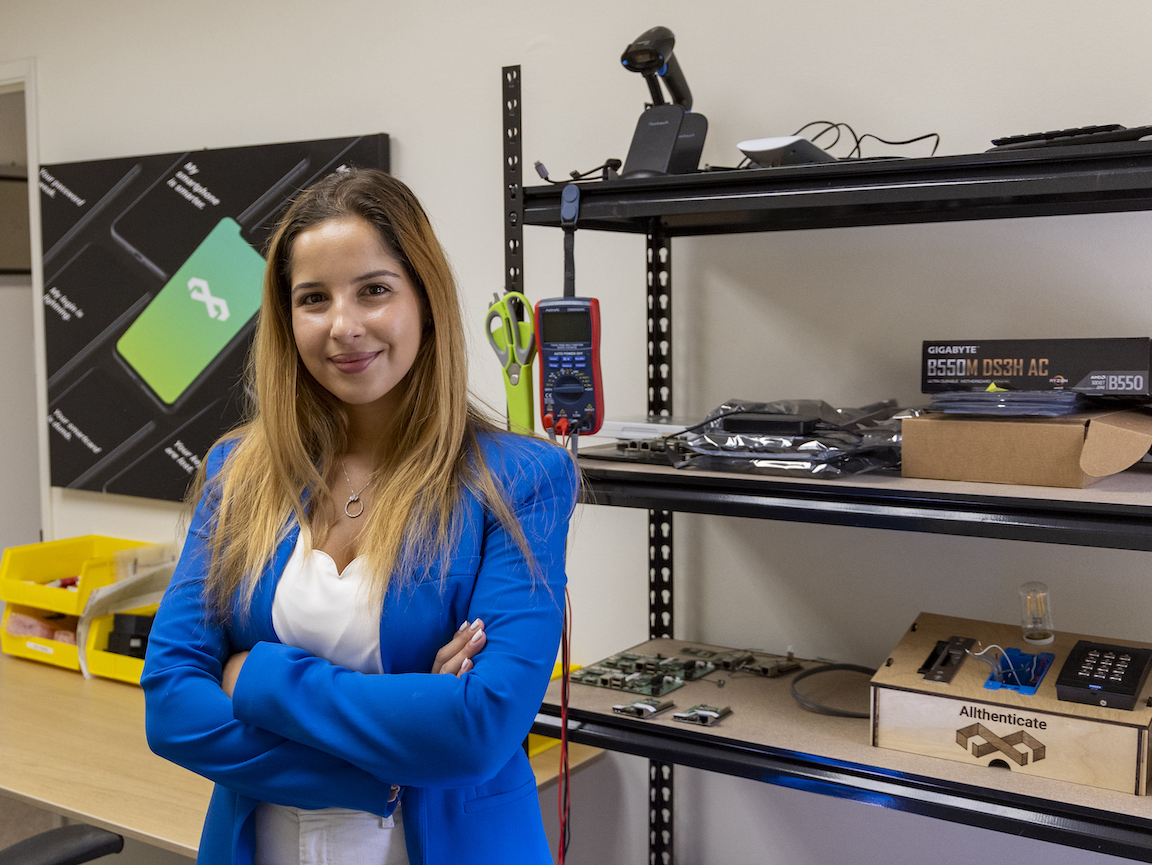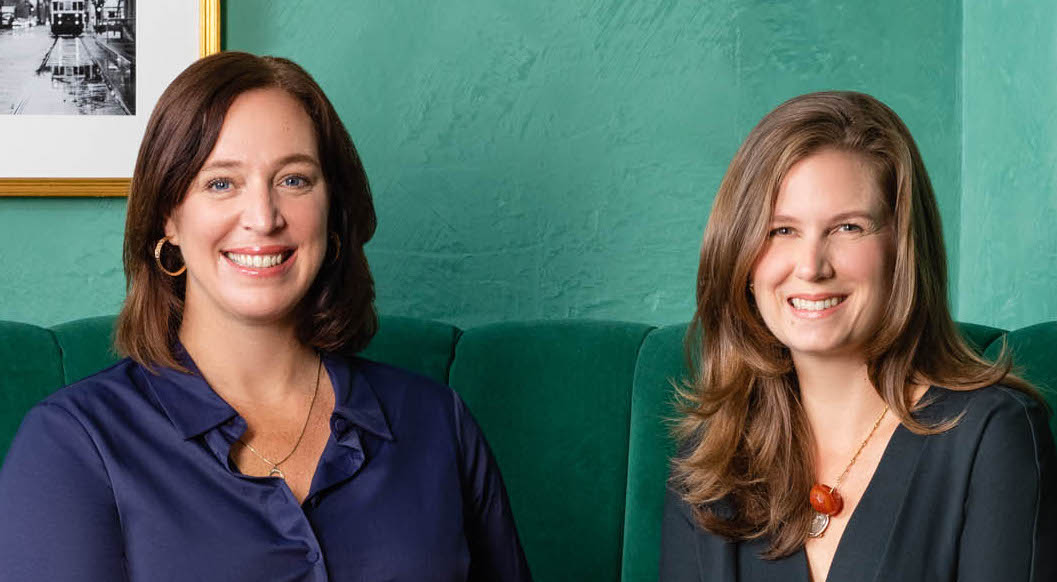In the region and the nation, women get a tiny share of venture capital dollars
IN THIS ARTICLE
- Latest news Topic
- Jorge Mercado Author
By Jorge Mercado Friday, September 30th, 2022

When Haley Pavone, the founder of San Luis Obispo-based Pashion Footwear, pitches to investors, hoping to gain new capital to scale her already successful business, she usually has one obstacle: convincing men to see the same need in the market she sees.
Pashion Footwear makes convertible heels — shoes with removable heels so they can transform in an instant from high heels to flats.
“The number one question that I’m asked by prospective male investors is, ‘Why don’t women just stop wearing high heels?’” Pavone told the Business Times. “In my case, 50% of the world deals with high-heel pain, so clearly this is not a niche market … but they are written off as such.”
Pavone’s story is just one example of how difficult it can be for women-founded startups to raise venture capital.
Venture capital funding hit a record in the United States in 2021 at nearly $57 billion. But companies founded solely by women, like Pashion, received only 2.4% of that total, according to the research company PitchBook.
Over the past 14 years, women-founded companies have never received more than 3% of the total venture capital.
“I’ve seen big posts from men in venture capital who talk about needing to be a part of the change. Well, women founders don’t need that anger online, we need the funding,” Pavone said. “If you’re worked up about it, just start funding us. That’s the solution, not writing a four-paragraph post on LinkedIn about it.”
Another problem is the lack of women venture capitalists on the other side of the table. Pavone said that on the rare occasions that she speaks to women VCs, the meetings are much smoother, because she can focus on the numbers instead of explaining why comfortable heels matter to women.
“I think it’s very, very difficult to get a lot of passion and conviction about a problem that’s being solved if you don’t experience yourself,” Pavone said. “It just creates this natural gap of opportunity where the people that have the money to be given are being presented with ideas that they don’t relate to. That doesn’t mean they aren’t valuable, but it’s easy for those funders to write those markets off as niche.”
According to Forbes, only about 12% of decision-makers at venture capital firms are women, and 65% of firms do not have a single female partner.
Santa Barbara does have a female-founded venture capital firm: Alante Capital, which was founded in 2016.

“We’re a rare venture and it’s slowly starting to change, but we are a tiny fraction of the total VC industry for sure,” said Karla Mora, the founder and co-managing partner at Alante. “If you have more diversity on the decision-makers of capital allocation, so the people who are allocating that capital are more diverse, they’re going to attract a more diverse and inclusive portfolio.”
Alante has invested in 12 companies, 75% of which have female founders. There are women or people of color as founders of 92% of the companies, and all of them have women or people of color in the C-Suite level.
At the beginning, Mora said, a lot of people didn’t take her firm seriously.
“I wasn’t like blatantly aware of the gender disparity, and I really wanted to not believe that it was the case, but after doing it for years, I started to kind of identify a lot of different situations that make it a little more challenging,” she said.
Companies that are founded by both men and women tend to receive a bit more funding. According to PitchBook, 14.8% of U.S. venture capital in 2021 went to companies with at least one woman on the founding team. That number had fallen recently — in 2017, companies with at least one woman founder got 15.9% of total venture funding.
Rita Mounir is the co-founder and chief operating officer of Allthenticate, a software startup based in Santa Barbara. She’s raised money both alongside and apart from her fellow co-founder Chad Spensky, and in most cases, has found success. Allthenticate closed a $3.1 million seed round in May.
But, she said, she knows that female entrepreneurs often just get one opportunity to start a successful company, while men get many chances. And the failure of a woman-founded company can be held against other women, Mounir said, pointing to Theranos, the Silicon Valley blood testing startup founded by Elizabeth Holmes, who was convicted of fraud in January.
“Women can’t raise money in Silicon Valley after Theranos because she messed it up for all women, but it’s sad because there have been a bunch of men who have also done similar things, but that doesn’t ruin venture capital for all men. There are always chances for them,” Mounir said.
She pointed to the example of Adam Nuemann, who lost billions of his investors’ dollars with the cowork startup WeWork and has now raised hundreds of millions from prominent venture capitalists for his next venture.
Mounir said she thinks having more women as limited partners, or investors in venture capital funds, would help.
Mora said the same thing, and added that 60% of individual investors into Alante’s first $10 million fund are women.
“It’s good when VCs give money to women-founded companies, but it would also be great if that money is going back to women LPs, because then it creates this cycle,” Mounir said.
Ali Bauerlein is no stranger to raising capital. She was a co-founder and former CFO at Inogen, a Goleta-based medical device company she helped start in 2001.
She remembers hearing insensitive comments, and was even mistaken for a waitress during a business meeting because she was a young woman, despite the fact that she was leading the meeting.
“I remember I was faced with a lot of skepticism and scrutiny that my male counterparts likely didn’t experience, and that’s unfortunate, but I tried to rise up in those times and prove my worth and prove my abilities, and then it’s up to them to decide if they want to invest or not,” Bauerlein said.
Bauerlein said she sees more women entrepreneurs now, something that excites her. She left Inogen in 2021, and venture capital doesn’t appear to be in her future, though she said she has done some angel investing.
But she does hope to continue helping women entrepreneurs form relationships with each other, because a reliable and powerful network can help them overcome some of these obstacles.
“If there’s not a lot of women entrepreneurs and women founders, it’s hard to find other women entrepreneurs and founders that you can rely on for help, and create that community, so it is a big challenge, but the more successful women there are, I think the more those networks will develop over time,” Bauerlein said. “I know many women founders feel really strongly about helping that next generation of women that are trying to follow the path that and truly start something new and exciting.”
Related Articles
 Monday, September 19th, 2022
Monday, September 19th, 2022










